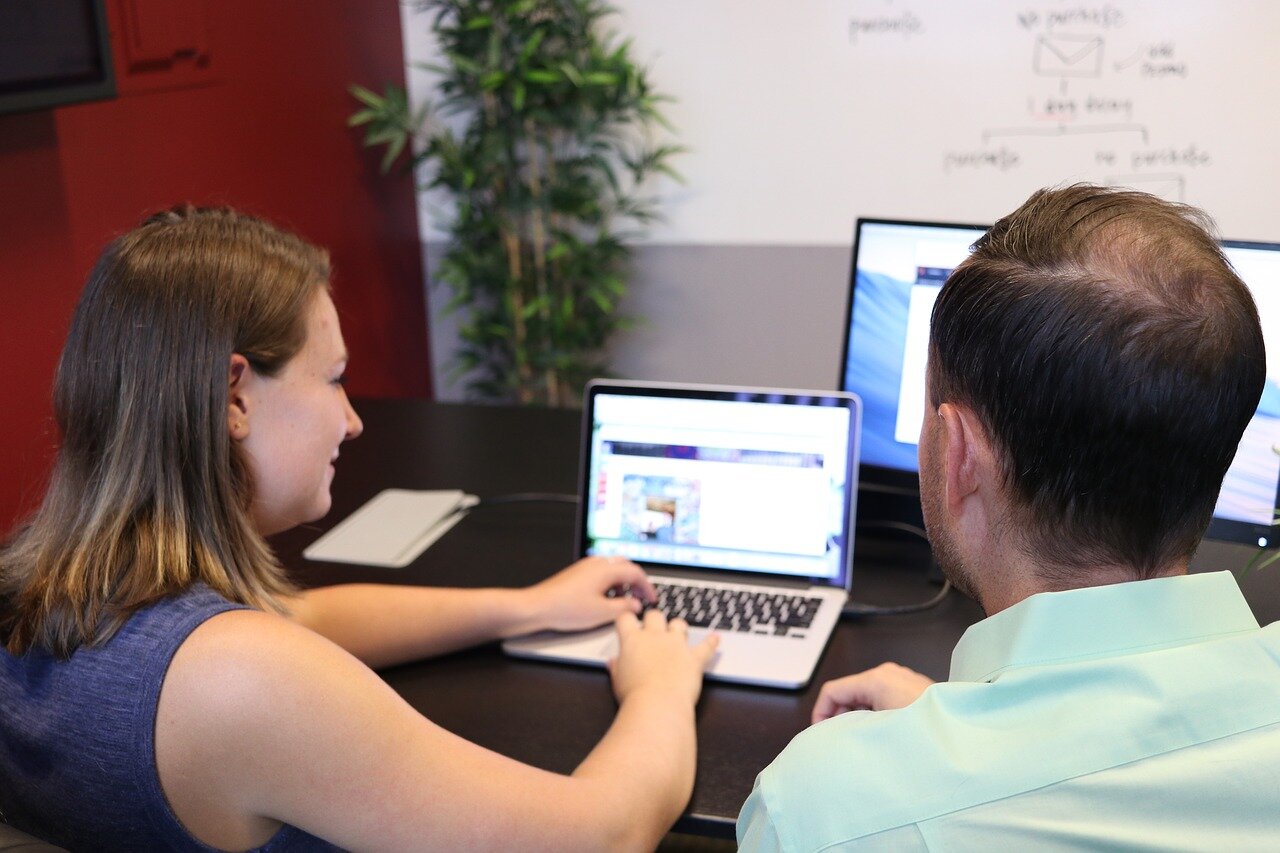
Language-Learning: Why You Should Take Private Classes
Dear Tess,
 We speak a lot about language-learning here on the blog. For example, you can find articles about The Roller Coaster of Learning a Language, Our Top Tips for Learning Spanish, Studying Spanish at a Language School in Spain, Learning Spanish Outside of Spanish Class, and so on. We know that learning Spanish is especially important to our readers who come to live abroad in Spain or even some of those who come just on vacation. For this reason, we have discussed many topics related to the different ways in which you can engage with the language.
We speak a lot about language-learning here on the blog. For example, you can find articles about The Roller Coaster of Learning a Language, Our Top Tips for Learning Spanish, Studying Spanish at a Language School in Spain, Learning Spanish Outside of Spanish Class, and so on. We know that learning Spanish is especially important to our readers who come to live abroad in Spain or even some of those who come just on vacation. For this reason, we have discussed many topics related to the different ways in which you can engage with the language.
Today, we’d like to focus on the specifics of taking private one-on-one language classes. Of course, private lessons tend to be more expensive than group lessons but we believe that these kinds of classes provide unique conditions that you can benefit from as a language-learner. Additionally, with online platforms like italki becoming more popular everyday, one-on-one classes are more available and accessible than ever before!
Note: This post is written primarily for people looking to take private lessons but our teacher insights are sprinkled throughout and we provide some specific thoughts on teaching one-on-one lessons at the end.
Reasons why you should take private lessons
Personalization:
1.) The classes will be taught at your pace: How many times have you been in a group class and felt like the teacher was going way too fast or way too slow for you? It’s common in group classes because it’s very rare for each and every student to have a similar level of understanding. Because of our differences in how quickly we pick up new information, teachers constantly have to make choices about how to make the lesson effective for the majority of the students. Unfortunately, if you don’t fall perfectly into that majority, you’ll find the lesson is either boring or over your head.
In a private class, though, the teacher can focus on you and you alone. This will allow them to slow down or pick up the pace based on your feedback. In a private lesson, your teacher will be able to make decisions to skip past topics you clearly have a handle on and to spend extra time on topics that are more challenging for you. When multiple students are involved they simply can’t make those choices.
 2.) The teacher can employ your preferred style of learning: Likewise, teachers in group settings need to take in consideration that their students will have distinct learning styles. This means that they will likely employ different activities in turn, meaning that some of the approaches will be less effective for you than others.
2.) The teacher can employ your preferred style of learning: Likewise, teachers in group settings need to take in consideration that their students will have distinct learning styles. This means that they will likely employ different activities in turn, meaning that some of the approaches will be less effective for you than others.
In terms of language-learning, this may look like interspersing conversation practice with grammar exercises and listening tests. If you find drilling grammar to be incredibly boring (and your teacher agrees it is not necessary for you), a private lesson will allow you to focus instead on speaking or listening practices. If you really benefit from visual learning, your teacher will likely take the time to create worksheets for you and/or write down each and every example, something that may not be effective nor efficient in a group setting.
3.) The classes can be 100% customizable: Similarly to the first two points, private lessons allow for a lot more flexibility when it comes to the content. This is especially true in terms of language-learning. Whereas a group class will focus on topics like “General Spanish” or “Business English,” a private lesson can be customized to discuss specifics like Spanish for tourism, Spanish for buying a house, or English for tech start-ups.
Of course, you may not be able to find private lessons advertised with such specific topics, but most private lesson teachers are happy to craft lessons to your particular needs. This can allow you to cover obscure topics that you would most likely never get to in a group class.
Not sure what we mean? We’ve literally asked our private lesson teachers to help us craft sympathetic responses for when a Spanish friend shares bad news, as well as worked with a student learning English to help her order the best deep dish pizza while she was visiting Chicago. No joke!
4 .) You get a lot more input: Seeing as we have worked as private lesson teachers with countless English language students, we can say with confidence that teachers tend to be thrilled when you want to dictate the scope of a one-on-one lesson. Often, it can be overwhelming for a teacher to plan customized lessons for multiple students so having your feedback on what you would like to learn is super helpful!
.) You get a lot more input: Seeing as we have worked as private lesson teachers with countless English language students, we can say with confidence that teachers tend to be thrilled when you want to dictate the scope of a one-on-one lesson. Often, it can be overwhelming for a teacher to plan customized lessons for multiple students so having your feedback on what you would like to learn is super helpful!
Of course, this is something best discussed at the beginning of your lessons together. We talk about the importance of teachers and students working together to establish the objective in one-on-one classes and we hope your private lesson teacher will take the time to do so. Even if they don’t, we encourage YOU to step up by suggesting a certain topic or even a resource to discuss (ie. a podcast, TV, article, etc in the target language- check out our recommendations for Spanish here). Making suggestions of what you believe will help you learn can really help set the tone and objectives.
Higher expectations lead to higher achievement:
5.) You get a lot more talk-time: This is probably obvious to you but it’s important enough to mention anyway. In group classes you do a lot more listening and/or partner work. Of course, this is helpful to an extent but if you’re practicing a foreign language with someone who is also learning the language you’re just as likely to pick up their bad habits as their good ones.
On the contrary, in a private lesson you have the teacher’s full attention and they will expect you to talk at least half of the time (often more). This can be intimidating and exhausting at first but it’s so beneficial in the long-run! The more you speak, the more mistakes you’ll make but that always means those mistakes will be brought to your attention and you can therefore work on correcting them for the future.
 6.) You receive specific feedback: Speaking of which, being the only student also means that your teacher will likely correct you more than in a group class. Speaking from personal experience, we know that it can negatively affect some students’ confidence if they are corrected profusely in front of their peers. Therefore, we will often choose only the most important one or two (common) mistakes to point out to the group whereas in a private class we are more likely to go through each and every error. Again, this can feel intimidating but in the end it’s much more effective and likely to get you to the point of fluency that you seek.
6.) You receive specific feedback: Speaking of which, being the only student also means that your teacher will likely correct you more than in a group class. Speaking from personal experience, we know that it can negatively affect some students’ confidence if they are corrected profusely in front of their peers. Therefore, we will often choose only the most important one or two (common) mistakes to point out to the group whereas in a private class we are more likely to go through each and every error. Again, this can feel intimidating but in the end it’s much more effective and likely to get you to the point of fluency that you seek.
7.) It benefits long-term learning: We’ll be speaking more about long-term learning later in the week, but let it suffice to say that the further along in your language-learning journey you get, the more beneficial private classes become. At the beginning, it’s easier to be on the same track as fellow classmates but the longer you learn a language the more individualized your needs become.
 Based on your personal experience, you may be really strong in some aspects but need more work in others and there’s a good chance that these strengths and weaknesses will not align with other individuals, even if you have the ‘same level’ on paper. For example, after fifteen years of practicing, Dani finds she has a lot of fluidity in Spanish and rarely struggles to express her point. However, she often relies on tricks that allow her to avoid using complex grammar and she circumlocates (uses a lot of simple language to explain things that could more aptly be described with one precise word).
Based on your personal experience, you may be really strong in some aspects but need more work in others and there’s a good chance that these strengths and weaknesses will not align with other individuals, even if you have the ‘same level’ on paper. For example, after fifteen years of practicing, Dani finds she has a lot of fluidity in Spanish and rarely struggles to express her point. However, she often relies on tricks that allow her to avoid using complex grammar and she circumlocates (uses a lot of simple language to explain things that could more aptly be described with one precise word).
Working with a teacher one-on-one allows her to address these issues which might not be viewed as ‘issues’ at all if she were in a group class. Think about it from the teacher’s perspective: if a student says something that is not inherently wrong in a group lesson, you may not take the time to give examples of better ways to say it. It is more effective to spend precious group time addressing actual errors, although it doesn’t help the advanced student very much.
 Are you a teacher?
Are you a teacher?
Teaching one-on-one class can benefit you, too. As the teacher, you can enjoy the peace of mind of meeting the specific needs of your student in all of the above ways. Private lessons all tend to lead to a more personal connection with your student. Because you’re able to tailor the lessons, improvement tends to be quicker and/or more profound, creating a more rewarding experience for all. Depending on the circumstances, private lessons also tend to be more profitable.
Check out these resources we’ve made for teachers:
Tips for Teaching Virtually (One-on-one Classes)
Tips for Teaching Virtually (Group Classes)
How to Get Private Lessons (as a Teacher) in Spain
 My Favorite Resources for Planning English Lessons
My Favorite Resources for Planning English Lessons
How to: Plan and Execute a Successful Private Lesson for Kids
Help! My Private Lesson is a Disaster
Why do you like (or dislike) private lessons? What factors do you take into consideration when choosing between group and private lessons?
Sincerely,
Spain




